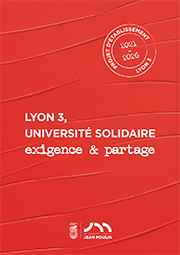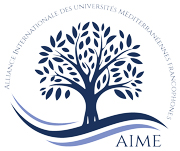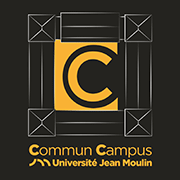AccueilRechercheProgrammes et productions scientifiquesThèsesThèses soutenuesThèses soutenues - 2006-2021Thèses soutenues - 2012
-
Partager cette page
- Recherche,
KOUROUMA Sophie
Constructions du principe autoritaire. Stratégies coloniales et post-coloniales en Afrique subsaharienne.?
Publié le 11 septembre 2012 – Mis à jour le 19 avril 2013
Thèse en Philosophie - Etude des systèmes soutenue le 7 septembre 2012.
L’histoire de la rencontre de l’Afrique et de l’Occident a, notamment, été énoncée en termes de ? choc ? ou d’? évènements-traumatismes ?. Quoi qu’il en f?t, c’est dans le cadre de la traite esclavagiste et de la colonisation que ces deux continents se sont ? heurtés ?. Leur confrontation a donc procédé, dans une large mesure, d’une pensée inégalitaire basée sur le postulat raciste, impulsée par une volonté répondant à des impératifs de conquête et économiques, supportée par un mode de gouvernement produisant et légitimant la domination et l’exploitation. Partant de l’évènement de cette rencontre et de son récit, il s’agit d’établir quels sont les concepts que la pensée imagine, fa?onne et énonce afin de justifier et d’exercer un pouvoir de domination. ?noncer, c’est fabriquer de la domination et la rendre légitime, telle est l’affirmation que nous étudions à travers le prisme de l’évènement de la rencontre – le temps de la colonie, particulièrement – et, également, après la colonie – en situation post-coloniale.
Cette étude s’inscrit dans le questionnement critique post-colonial. ? l’instar de la domination coloniale, il s’agit de déterminer, en Afrique post-coloniale, les imaginaires et les énoncés qui produisent et légitiment un pouvoir hégémonique, comment et par qui l’autorité s’exerce, ce qu’est le politique – tout est-il politique ? –, sur quels critères une pratique ou un discours constituent-t-ils des modalités d’expression et de participation politique ?
En spécifiant l’énonciation de l’autorité – son ? effet d’oracle ? – et les stratégies de la domination coloniale et post-coloniale, la question de leur efficience et de leur omniscience se pose. L’enjeu est d’analyser la convergence des histoires afin de penser le post-colonial comme un engagement de la recherche dans la construction d’une démocratie post-raciale en Afrique et en Occident.
The history of the meeting of Africa and the Western world had, notably, been enunciated in terms of “clash” or “traumatic events”. Whatever has been done, it is in the framework of the slave business and of the colonialization that these two continents collided. Their confrontation came in large part from an unequal thinking based on the racist idea which comes from a willingness answering to obligations of conquest and economics, supported by a way of government producing and legitimizing domination and exploitation. Thus, from the event of this meeting and from its results, we must establish which are the concepts that the thought imagines, makes and enunciates to justify and exercise a power of domination. Enunciate, it is to create domination and make it legitimate, so strong is the affirmation that we study the event through a prism of this meeting, colonial times, particularly – and equally, after the colony – in a postcolonial situation.
This study is written in the critical postcolonial questioning. In the links of the colonial domination, it is to determine, in postcolonial Africa, the imaginations and the enounced which produce and legitimize an hegemonic power, how and by who is the authority used, that which is policy – is everything policy? On which criteria does a practice or a speech constitute a way of expression and political participation?
By specifying the enunciation of authority – his “oracle effect” – and the strategies of the colonial and postcolonial domination, the question of their success and of their omniscience must be asked. The challenge is to analyse the convergence of histories to the think of postcolonial as a commitment of research in the construction of a postracial democracy in Africa and in the West.
Mots-clefs : Afrique, colonie, domination, énoncés, ?tats, imaginaires, politique, post-colonie.
Keywords : Africa, colony, domination, enounced, imaginations, politic, postcolonial, States.
Directeur de thèse : Jean-Jacques WUNENBURGER
Membres du jury :
Arlette CHEMAIN DEGRANGE, Professeur émérite, Université de Nice Sophia Antipolis
Yacouba KONATE, Professeur, Université d’Abidjan-Cocody, Cote d’Ivoire
Jean-Michel DJIAN, Professeur, Université Paris VIII
Jean-Jacques WUNENBURGER, Professeur, Université Jean Moulin Lyon 3
Jean-Philippe PIERRON, Ma?tre de conférences HDR, Université Jean Moulin Lyon 3
Mention : Très honorable avec les félicitations du jury
Equipe d'accueil : IRPHIL
Cette étude s’inscrit dans le questionnement critique post-colonial. ? l’instar de la domination coloniale, il s’agit de déterminer, en Afrique post-coloniale, les imaginaires et les énoncés qui produisent et légitiment un pouvoir hégémonique, comment et par qui l’autorité s’exerce, ce qu’est le politique – tout est-il politique ? –, sur quels critères une pratique ou un discours constituent-t-ils des modalités d’expression et de participation politique ?
En spécifiant l’énonciation de l’autorité – son ? effet d’oracle ? – et les stratégies de la domination coloniale et post-coloniale, la question de leur efficience et de leur omniscience se pose. L’enjeu est d’analyser la convergence des histoires afin de penser le post-colonial comme un engagement de la recherche dans la construction d’une démocratie post-raciale en Afrique et en Occident.
The history of the meeting of Africa and the Western world had, notably, been enunciated in terms of “clash” or “traumatic events”. Whatever has been done, it is in the framework of the slave business and of the colonialization that these two continents collided. Their confrontation came in large part from an unequal thinking based on the racist idea which comes from a willingness answering to obligations of conquest and economics, supported by a way of government producing and legitimizing domination and exploitation. Thus, from the event of this meeting and from its results, we must establish which are the concepts that the thought imagines, makes and enunciates to justify and exercise a power of domination. Enunciate, it is to create domination and make it legitimate, so strong is the affirmation that we study the event through a prism of this meeting, colonial times, particularly – and equally, after the colony – in a postcolonial situation.
This study is written in the critical postcolonial questioning. In the links of the colonial domination, it is to determine, in postcolonial Africa, the imaginations and the enounced which produce and legitimize an hegemonic power, how and by who is the authority used, that which is policy – is everything policy? On which criteria does a practice or a speech constitute a way of expression and political participation?
By specifying the enunciation of authority – his “oracle effect” – and the strategies of the colonial and postcolonial domination, the question of their success and of their omniscience must be asked. The challenge is to analyse the convergence of histories to the think of postcolonial as a commitment of research in the construction of a postracial democracy in Africa and in the West.
Mots-clefs : Afrique, colonie, domination, énoncés, ?tats, imaginaires, politique, post-colonie.
Keywords : Africa, colony, domination, enounced, imaginations, politic, postcolonial, States.
Directeur de thèse : Jean-Jacques WUNENBURGER
Membres du jury :
Arlette CHEMAIN DEGRANGE, Professeur émérite, Université de Nice Sophia Antipolis
Yacouba KONATE, Professeur, Université d’Abidjan-Cocody, Cote d’Ivoire
Jean-Michel DJIAN, Professeur, Université Paris VIII
Jean-Jacques WUNENBURGER, Professeur, Université Jean Moulin Lyon 3
Jean-Philippe PIERRON, Ma?tre de conférences HDR, Université Jean Moulin Lyon 3
Mention : Très honorable avec les félicitations du jury
Equipe d'accueil : IRPHIL
Documentation
Mise à jour : 19 avril 2013







